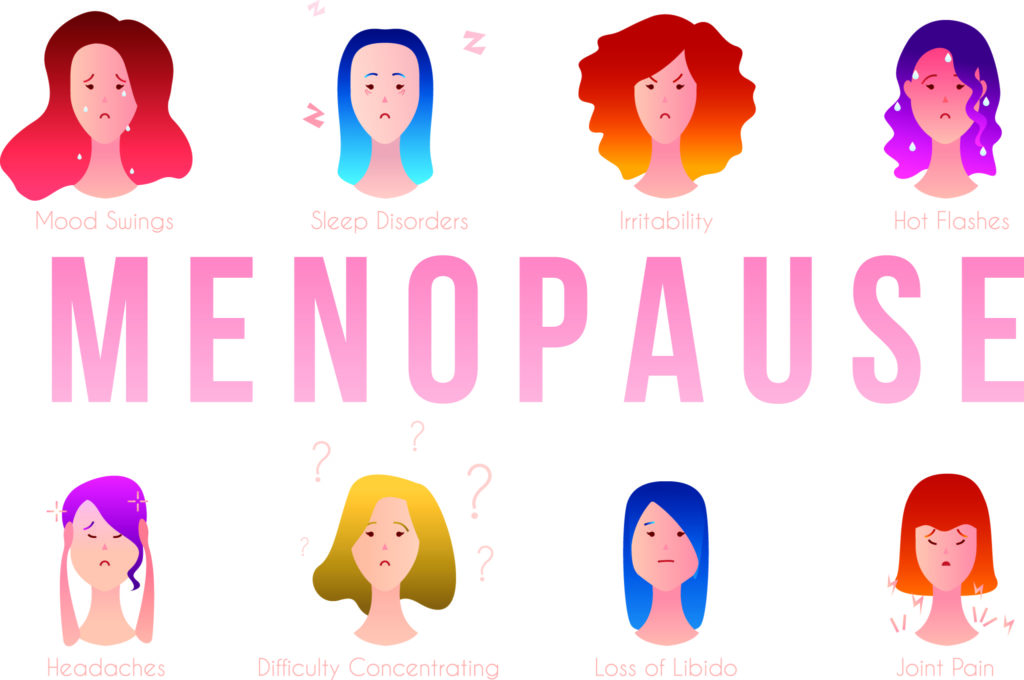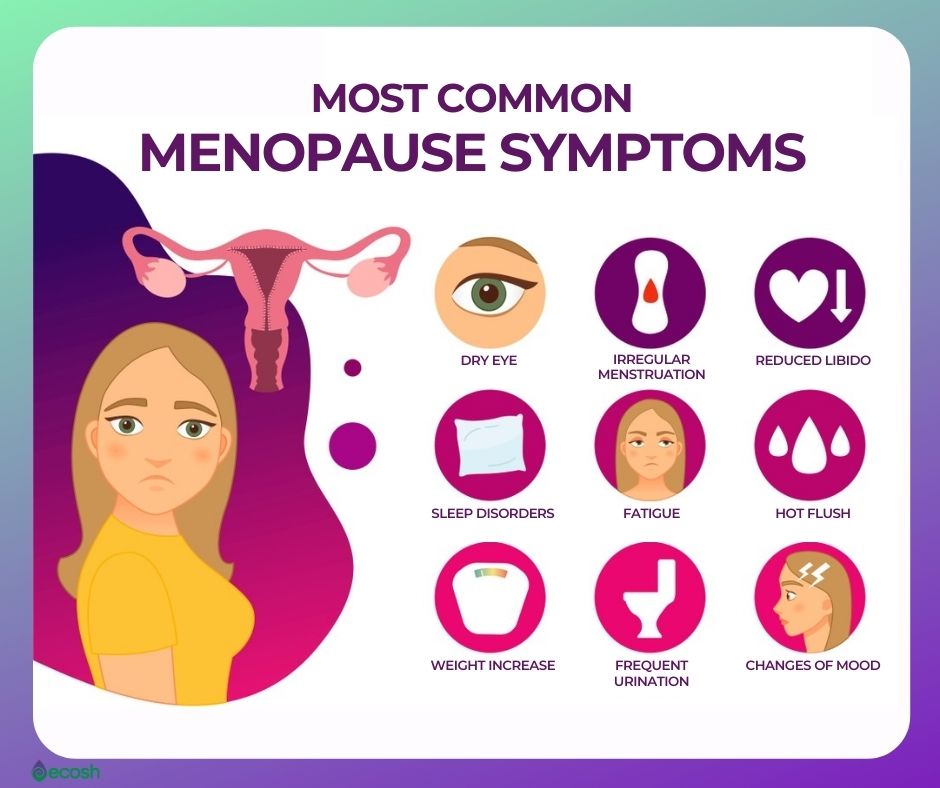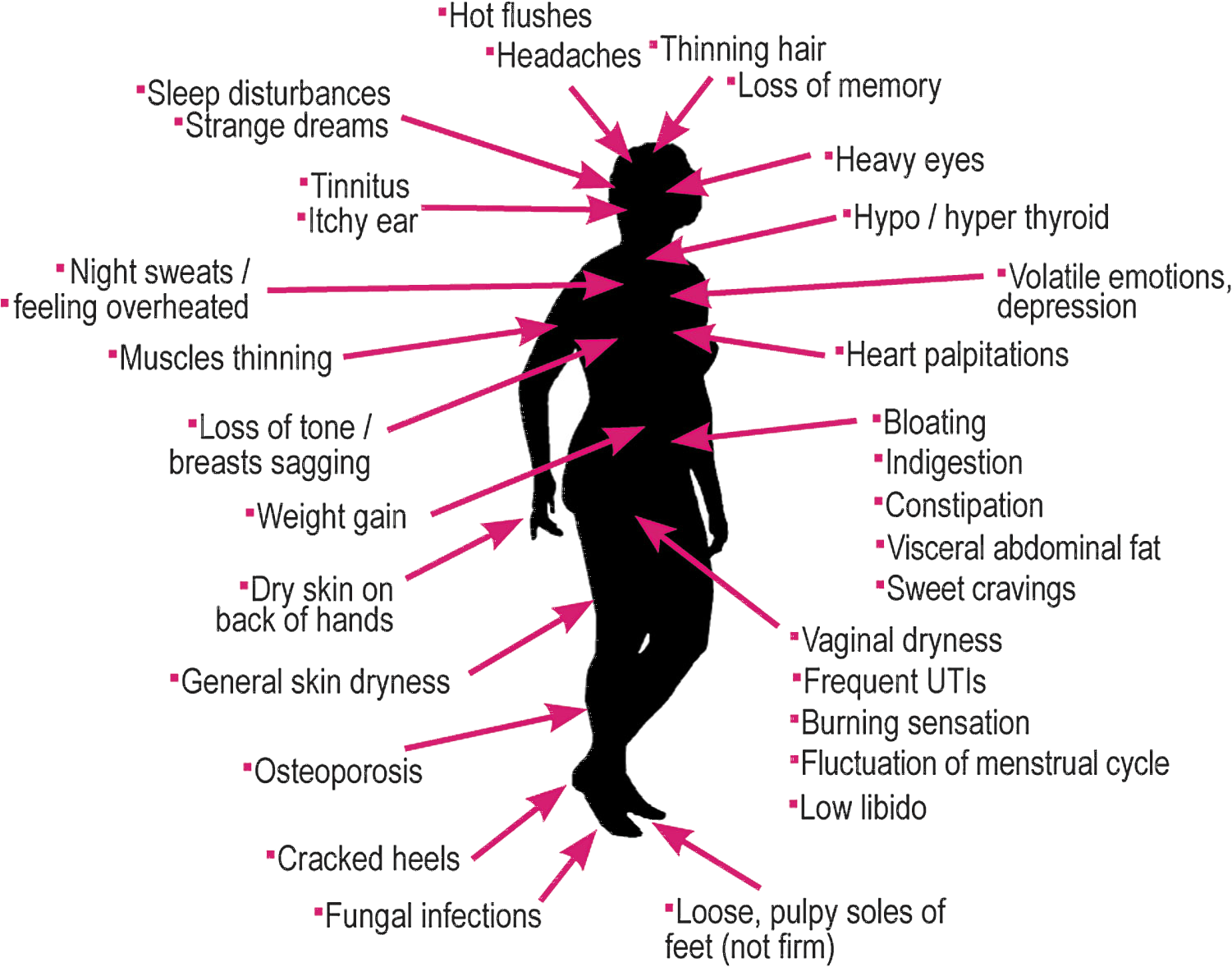As signs and symptoms of menopause take center stage, this comprehensive guide invites you on an informative journey, exploring the physical, emotional, cognitive, and lifestyle changes associated with this transition. With a focus on accuracy and clarity, we aim to provide a valuable resource that empowers individuals to navigate this phase with knowledge and support.
Menopause, a natural stage in a woman’s life, brings about a myriad of experiences that can impact daily life. Understanding the signs and symptoms associated with menopause is crucial for managing this transition effectively and maintaining overall well-being.
Physical Symptoms
Menopause, a natural transition in a woman’s life, brings about a range of physical symptoms that can vary in severity and duration. These symptoms are primarily attributed to the declining levels of estrogen and progesterone, hormones produced by the ovaries.
The physical manifestations of menopause can significantly impact a woman’s daily life and well-being, affecting her physical comfort, sleep patterns, and overall health. Understanding these symptoms and their potential impact is crucial for women navigating this phase of life.
Hot Flashes and Night Sweats
- Sudden, intense sensations of heat accompanied by flushing of the face, neck, and chest
- Can occur day or night, with varying frequency and duration
- May be triggered by certain foods, caffeine, alcohol, or stress
- Can disrupt sleep, cause discomfort, and interfere with daily activities
Sleep Disturbances
- Difficulty falling or staying asleep
- Frequent awakenings during the night
- Early morning awakenings
- Can lead to fatigue, irritability, and difficulty concentrating
Vaginal Dryness
- Thinning and drying of the vaginal walls due to decreased estrogen levels
- Can cause discomfort during intercourse
- May increase the risk of vaginal infections
Bone Loss
- Estrogen plays a crucial role in maintaining bone density
- After menopause, bone loss accelerates, increasing the risk of osteoporosis
- Can lead to fractures, particularly of the hip, spine, and wrist
Weight Gain
- Menopause can lead to changes in metabolism and body composition
- Women may experience weight gain, especially around the abdomen
- Can contribute to other health concerns such as heart disease and diabetes
Mood Swings
- Hormonal fluctuations can affect mood
- Women may experience irritability, anxiety, or depression
- Can impact relationships and overall well-being
Other Physical Symptoms
- Headaches
- Joint pain
- Muscle cramps
- Skin changes
- Hair loss or thinning
Emotional Symptoms
Menopause is a natural process that marks the end of a woman’s reproductive years. It is accompanied by a decline in estrogen and progesterone levels, which can trigger a range of emotional changes.
These changes can include mood swings, irritability, anxiety, and depression. They can be caused by the hormonal fluctuations that occur during menopause, as well as by the psychological effects of this transition.
Mood Swings
Mood swings are one of the most common emotional symptoms of menopause. They can range from mild to severe, and can be triggered by a variety of factors, including hormonal changes, stress, and sleep deprivation.
Irritability
Irritability is another common emotional symptom of menopause. It can be caused by a variety of factors, including hormonal changes, fatigue, and stress.
Anxiety
Anxiety is a common emotional symptom of menopause. It can be caused by a variety of factors, including hormonal changes, stress, and sleep deprivation.
Cognitive Changes: Signs And Symptoms Of Menopause

Menopause can affect cognitive function, leading to changes in memory, concentration, and problem-solving abilities. These changes are often temporary and may vary in severity from woman to woman.
Memory
Memory changes during menopause can include difficulty recalling names, dates, or appointments. This may be due to hormonal fluctuations affecting the brain’s ability to encode and retrieve information.
Concentration
Menopause can also impact concentration, making it harder to focus on tasks or follow conversations. This may be related to changes in the levels of neurotransmitters like estrogen, which play a role in attention and cognitive function.
Problem-Solving Abilities
Some women may experience changes in their problem-solving abilities during menopause. This may manifest as difficulty making decisions or finding solutions to problems. These changes may be related to alterations in the brain’s executive function, which is responsible for planning, organizing, and decision-making.
Strategies for Managing Cognitive Changes, Signs and symptoms of menopause
While cognitive changes during menopause can be frustrating, there are strategies to help manage them:
- Engage in mentally stimulating activities:Reading, puzzles, and games can help keep the mind active and improve cognitive function.
- Get regular exercise:Physical activity increases blood flow to the brain, which can benefit cognitive health.
- Manage stress:Stress can exacerbate cognitive symptoms. Finding healthy ways to manage stress, such as yoga or meditation, can be helpful.
- Get enough sleep:Sleep deprivation can worsen cognitive function. Aim for 7-9 hours of quality sleep each night.
- Consider hormone therapy:In some cases, hormone therapy may be prescribed to alleviate cognitive symptoms associated with menopause.
Lifestyle Factors

Menopausal symptoms can vary in severity, and certain lifestyle factors can influence their intensity. Understanding these factors and implementing positive changes can help manage menopausal symptoms and improve overall well-being.
Diet
A balanced diet rich in fruits, vegetables, and whole grains can provide essential nutrients that support hormonal balance and reduce inflammation. Incorporating phytoestrogens, such as those found in soybeans, flaxseeds, and lentils, can help mimic the effects of estrogen, easing hot flashes and other symptoms.
Additionally, reducing processed foods, sugary drinks, and unhealthy fats can promote overall health and reduce menopausal discomfort.
Exercise
Regular physical activity helps maintain a healthy weight, reduces stress, and improves cardiovascular health. Aim for at least 150 minutes of moderate-intensity exercise or 75 minutes of vigorous-intensity exercise per week. Incorporating weight-bearing exercises, such as strength training, can help prevent bone loss, a common concern during menopause.
Stress Management
Stress can exacerbate menopausal symptoms, so finding effective stress management techniques is crucial. Consider activities like yoga, meditation, or deep breathing exercises to reduce stress levels. Getting enough sleep, maintaining a positive attitude, and connecting with loved ones can also contribute to emotional well-being during menopause.
Medical Management
Menopausal symptoms can be managed through a variety of medical treatments. These include hormone replacement therapy (HRT), other medications, and non-hormonal therapies.
HRT involves taking estrogen and/or progesterone to replace the hormones that are no longer being produced by the ovaries. HRT can effectively relieve many menopausal symptoms, including hot flashes, night sweats, vaginal dryness, and mood changes. However, HRT can also increase the risk of certain health conditions, such as blood clots, stroke, and breast cancer.
The decision of whether or not to take HRT should be made in consultation with a healthcare provider.
Other Medications
Other medications that can be used to alleviate menopausal symptoms include:
- Antidepressants, such as selective serotonin reuptake inhibitors (SSRIs) and serotonin-norepinephrine reuptake inhibitors (SNRIs), can help to improve mood and reduce hot flashes.
- Clonidine, a medication that is typically used to treat high blood pressure, can also be effective in reducing hot flashes.
- Gabapentin, an anticonvulsant medication, can be used to treat hot flashes and night sweats.
Non-Hormonal Therapies
Non-hormonal therapies that can be used to manage menopausal symptoms include:
- Cognitive behavioral therapy (CBT) can help to improve mood and reduce hot flashes.
- Mindfulness-based stress reduction (MBSR) can help to reduce stress and improve sleep.
- Yoga and tai chi can help to improve mood and reduce hot flashes.
Alternative Therapies
Alternative therapies offer a range of complementary approaches to manage menopausal symptoms. While traditional medical treatments remain the mainstay, some women may find relief from alternative therapies.
Herbal Remedies
Certain herbs have been traditionally used to alleviate menopausal symptoms. Black cohosh, for instance, has shown promise in reducing hot flashes and night sweats. Other herbs, such as red clover and dong quai, may also provide relief.
Acupuncture
Acupuncture, an ancient Chinese practice, involves the insertion of thin needles into specific points on the body. Studies have suggested that acupuncture may be effective in reducing hot flashes, night sweats, and other menopausal symptoms.
Mindfulness Practices
Mindfulness practices, such as meditation and yoga, can help manage stress and improve overall well-being. By promoting relaxation and self-awareness, these practices may alleviate menopausal symptoms, including anxiety and mood swings.
It is important to note that while some alternative therapies may provide relief, their effectiveness varies from person to person. Consultation with a qualified healthcare practitioner is recommended before using any alternative therapy to ensure safety and appropriate use.
Social and Cultural Perspectives

Menopause is a significant life event that can be influenced by social and cultural factors. Societal attitudes and perceptions can shape women’s experiences of menopause, impacting their physical, emotional, and social well-being.
In some cultures, menopause is viewed as a natural transition, while in others, it is associated with stigma and discrimination. Negative attitudes can lead to women feeling ashamed, isolated, and undervalued.
Strategies for Addressing Stigma and Discrimination
- Education and awareness:Promoting accurate information about menopause and its symptoms can help dispel myths and reduce stigma.
- Support groups and peer networks:Connecting with others who are experiencing menopause can provide a sense of community and validation.
- Media representation:Positive and diverse portrayals of women in menopause can challenge stereotypes and normalize the experience.
- Policy and advocacy:Advocating for policies that support women’s health and well-being during menopause, such as access to healthcare and workplace accommodations, can create a more inclusive environment.
Detailed FAQs
What are the most common physical symptoms of menopause?
Hot flashes, night sweats, vaginal dryness, sleep disturbances, and weight gain are among the most frequently reported physical symptoms of menopause.
How can I manage emotional changes during menopause?
Engaging in stress-reducing activities such as exercise, yoga, or meditation can help regulate mood swings and irritability. Seeking support from friends, family, or a therapist can also provide emotional comfort and validation.
Does menopause affect cognitive function?
Some women may experience changes in memory, concentration, and problem-solving abilities during menopause. These changes are typically mild and temporary, and can be managed through cognitive exercises, brain-stimulating activities, and a healthy lifestyle.